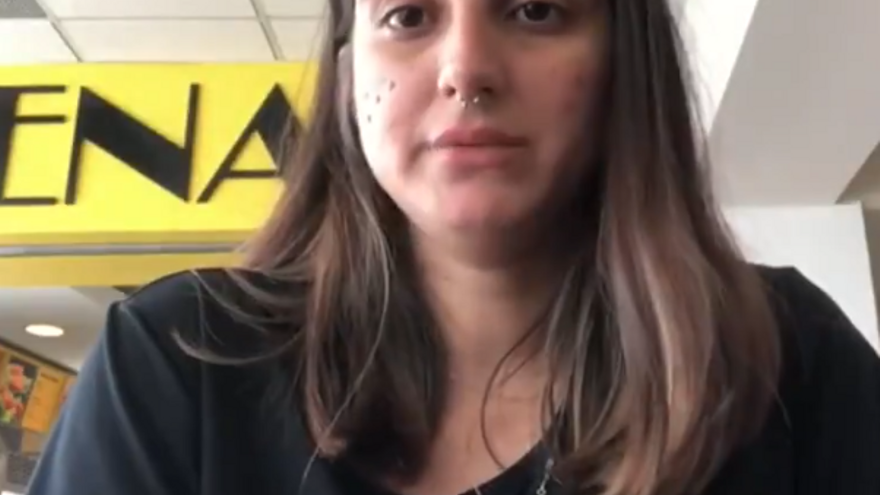
![]() 14ymedio, Lorey Saman, Mexico, 9 August 2021 — Cuban journalist Karla María Pérez, whose return to the island was banned in March by the authorities of her own country, received refugee status in Costa Rica on Monday.
14ymedio, Lorey Saman, Mexico, 9 August 2021 — Cuban journalist Karla María Pérez, whose return to the island was banned in March by the authorities of her own country, received refugee status in Costa Rica on Monday.
As she explains to 14ymedio, “the refuge (it is not asylum), automatically gives me permanent residence in Costa Rica, which means legal status in the country, with access to social security, education, finances, and a work permit.”
Journalist and editor at ADN Cuba magazine, Karla María Pérez flew by Copa Airlines from San José to Panama last March without problems, but she was not allowed to board the plane there to continue to Cuba, according to what she told this newspaper at the time. They gave her no further explanation, “despite the fact that I met all the requirements, my paid extension [of the passport that lasts six years and must be extended every two years] whether I am resident or not on the Island, my PCR test, my ticket.”
An airline employee let her to listen to an audio “of an unidentified person from Migración de Cuba” who said, “No, it has nothing to do with extensions or with any legal requirements; Karla is prohibited from entering Cuba.”
Upon learning of her approval for refuge, Pérez wrote on her social networks that it was in Costa Rica, her second country, where she became an adult and has spent the last four years of her life. “The Cuban dictatorship banishes me and Costa Rica, in this ’return’, welcomes me with open arms and recognizes my right to a little piece of land,” she said.
The young woman was expelled from the Marta Abreu de Las Villas Central University “for political reasons” in 2017 when she was studying journalism. She was linked to the Somos + Movement and had published on digital sites critical of the Government. She then traveled to Costa Rica thanks to a scholarship and graduated last December.
“The goal is to continue fighting the dictatorship from journalism, as I have been doing for more than four years,” she now tells this newspaper. “I don’t lose hope of being able to return to my country. To be free to choose, basically.”
It is a common practice for airlines to prevent Cubans who have exceeded two years off the island from boarding their planes, the regulatory time to maintain residence established in the Cuban Immigration Law that came into force in 2013. With this legislation, the authorities filter out the emigrants who, after spending 24 months outside the national territory, maintain a critical position with the regime.
The situation has been repeated on other occasions because the airlines that fly to Cuba have signed agreements that oblige them to carry a passenger back if they let him board without first having confirmation that he can enter the country.
Regarding the protests of July 11 (11J) on the island, in which thousands of Cubans participated, Pérez says that “they are a dream come true… I totally identify with the demands of those people who took to the streets, stripped of fear, to ask for freedom. Perhaps I would be currently imprisoned in Cuba, because on June 11 the house would have been too small for me.”
The reporter takes the opportunity to send “much strength” to her comrades who are fighting inside Cuba, “especially to fellow journalists” and points out: “Out here we will continue to denounce and press, because the silence is over. We are not going to shut up. From 11J there is no return. It is forward!”
____________
COLLABORATE WITH OUR WORK: The 14ymedio team is committed to practicing serious journalism that reflects Cuba’s reality in all its depth. Thank you for joining us on this long journey. We invite you to continue supporting us by becoming a member of 14ymedio now. Together we can continue transforming journalism in Cuba.
